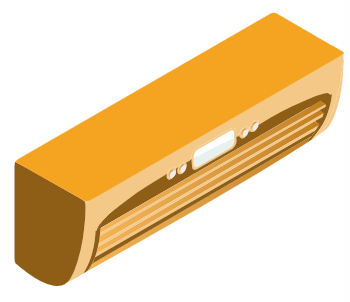Saving Money During Winter with a Heater in Australia
Staying warm during Australia’s chilly winter months is essential, but using a heater can quickly drive up your energy bills. Understanding the different types of heaters and how to use them efficiently can help you stay cozy without overspending. Whether you’re using a gas heater, oil heater, or electric fan heater, small changes can lead to significant savings.
Choosing the Right Heater for Your Home
Selecting the right heater is the first step to reducing energy costs. If you’re thinking “What is a space heater?”, it’s a portable heater designed to heat a small area rather than an entire home. Space heaters are ideal for quickly warming up bedrooms or small living areas. Another popular option is the convection heater, which works by heating the air around it and is great for maintaining a constant temperature.
Oil heaters are another popular option. These heaters use oil as a thermal reservoir, slowly releasing heat even after being turned off. They are energy-efficient and ideal for bedrooms or small rooms. However, keep in mind that oil heaters are slower to warm up compared to fan heaters. Depending on its wattage and your electricity rate for all the heaters, it typically costs $0.40–$0.60 per hour to operate.
Gas heaters, like those from Rinnai, are often more cost-effective for heating larger spaces. They can run on natural gas or bottled LPG and offer quick, powerful heating. However, if your gas heater thermostat is not working, it may overheat or waste energy. Maintaining your thermostat is essential for efficiency.

How Much Does It Cost to Run a Heater?
The cost of running a heater depends on its wattage and usage. Lets imagine you want to run your heater for 24 hours during the cold winter months, if the heater is 2,000 watts this would be the breakdown:
- A 2,000-watt (2 kW) heater running for 24 hours would consume 48 kWh.
- At an average electricity rate of $0.30 per kWh, the cost would be approximately $14.40 per day.
Using timers and thermostats can help limit usage and lower your bills. Instant heaters, which warm up quickly, can also save money by reducing the amount of time the heater needs to run.

Good Buyz offers a variety of sustainable smart home appliances and devices designed to work with renewable energy systems. Their range includes energy-efficient refrigerators, washing machines, smart thermostats, and lighting—all designed to reduce electricity use and integrate seamlessly with solar panels and battery storage. These products help you create a greener, more connected home by optimizing energy consumption automatically through smart controls and app-based scheduling.
Tips for Reducing Heating Costs in Winter
To save money while staying warm, consider the following strategies:
- Seal Drafts: Use draft stoppers under doors and seal window gaps to prevent heat from escaping.
- Use Timers and Thermostats: Set your heater to turn off when you’re sleeping or away from home.
- Layer Up: Wearing warm clothes and using blankets reduces the need to run heaters for extended periods.
- Use Fans Wisely: Ceiling fans set to rotate clockwise can help push warm air down, circulating heat more effectively.
- Choose Energy-Efficient Models: Heaters with higher Energy Star ratings will cost less to operate in the long run.

Want to Switch to a New Energy Provider?
Speak to an agent or see more plans for free !
Types of Heaters and Their Costs
There are many different types of heaters, so there will always be a great option for you! Electric heaters are convenient and portable, making them great for small spaces. Popular options like the Dyson heater combine heating with air purification, though they may be more expensive. Kmart offers budget-friendly options, including fan and panel heaters. Fan heaters provide quick warmth but may consume more energy, so they’re best used for short periods.
Diesel heaters are typically used in outdoor or garage spaces. But be careful, you cannot use these heaters indoors. Diesel heaters produce carbon monoxide, which is dangerous in enclosed spaces without proper ventilation.
Heat pump heaters are among the most energy-efficient options, extracting heat from the outside air to warm your home. However, they may have limitations in extremely cold climates.
Wood heaters are another effective option, especially for colder regions or off-grid homes. They provide strong radiant heat and can be very cost-effective if you can access affordable firewood. Modern wood heaters are designed to be more efficient and produce fewer emissions than older models. However, proper installation is crucial for safety and performance—a certified installer is required to ensure compliance with Australian safety standards and to install the necessary flue system.

How to Save Money on Hot Water Heating
Hot water heaters account for a significant portion of winter energy bills. An inefficient water heater can add hundreds of dollars to your annual bill. Heat pump water heaters are one of the most efficient options, but they have some disadvantages. They can be noisy, require more space, and may not perform as well in extremely cold temperatures. Understanding how a heat pump water heater works—by extracting heat from the air and using it to heat water—can help you use it more efficiently.
If your water heater is not heating properly, you may need to reset your hot water heater or check for leaks. It can be dangerous since it can lead to water damage and increased energy bills. Ensure any issues are addressed promptly.
How Long Does a Hot Water Heater Last?
Hot water heaters typically last between 8 to 12 years. Regular maintenance, such as flushing out sediment and checking the thermostat, can extend their lifespan. You can also save energy by adjusting the temperature to a lower setting. Electric water heaters may take 60–90 minutes, while instant water heaters heat water on demand, saving both energy and time.
Stay Warm and Save Money This Winter
Heating your home doesn’t have to come with sky-high electricity bills. By choosing the right type of heater—whether it’s a gas heater, oil heater, or electric heater—and using it efficiently, you can stay warm without overspending. Sealing drafts, using timers, and wearing warmer clothing can help reduce heater usage, especially during the coldest months. If you’re in the market for a new heater, brands like Dyson, Rinnai, and Kmart offer options for every budget. By adopting these money-saving strategies, you can enjoy a cozy winter while keeping your energy costs under control.
Frequently Asked Questions: Efficient Heating in Australia
What are the main types of heaters used in Australian homes?
Common options include portable space heaters, convection heaters, oil-filled heaters, gas heaters (natural gas and LPG), ceramic heaters, panel heaters, radiant heaters, heat pump heaters, and wood heaters. Each varies in efficiency, heating method, and best uses.
Which heaters are the most energy efficient?
Heat pump (reverse cycle) air conditioners are among the most efficient, delivering more heat energy than electricity consumed. Oil-filled column heaters and modern ceramic heaters also offer good efficiency for smaller spaces. Gas heaters powered by natural gas or LPG are efficient for larger areas, with lower running costs than electric heaters.
How much does it typically cost to run a heater?
Running costs depend on wattage and usage duration. For example, a 2,000 watt heater running 24 hours at $0.30/kWh would cost about $14.40 per day. Using timers, thermostats, and choosing energy-efficient models can reduce heating costs significantly.
What tips can help reduce heating bills in winter?
Seal drafts and insulate gaps around doors and windows, use programmable timers and thermostats, wear warm clothing indoors, use ceiling fans to circulate warm air downward, and choose heaters with high energy ratings. Maintaining heaters and turning them off in unused rooms also saves energy.
Are there specific heater brands recommended in Australia?
Popular and well-reviewed brands include Dyson (Purifier Hot+Cool models), Rinnai (gas heaters and heat pumps), De'Longhi (ceramic tower heaters), and Kmart's budget-friendly options. Reverse cycle air conditioners are also highly rated models from SPT, Haier, and Actron Air.
What are the advantages and disadvantages of different heater types?
Electric heaters are portable and easy to use but can be costly to run. Gas heaters are cost-effective for heating larger spaces but need ventilation. Oil heaters retain heat well but warm up slowly. Heat pumps offer high efficiency, but initial cost is higher. Wood heaters provide radiant warmth and can be economical if firewood is accessible.
How long do typical heaters last?
Heater lifespan varies with type and maintenance. Electric heaters often last 5–10 years, gas heaters 10–15 years, and wood heaters can last several decades with proper care. Regular maintenance extends operation and efficiency.
Click below to find a better deal for your home!


